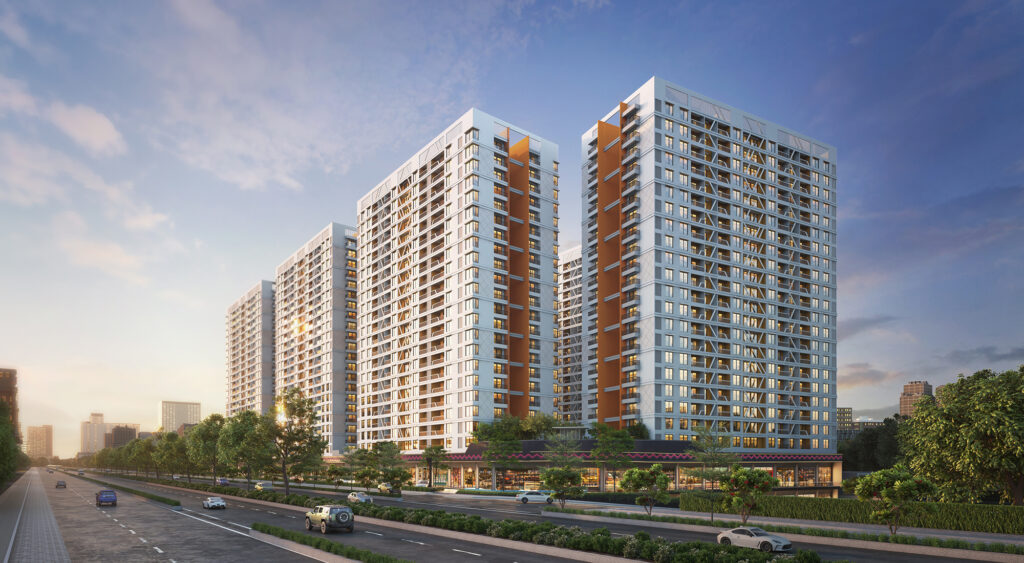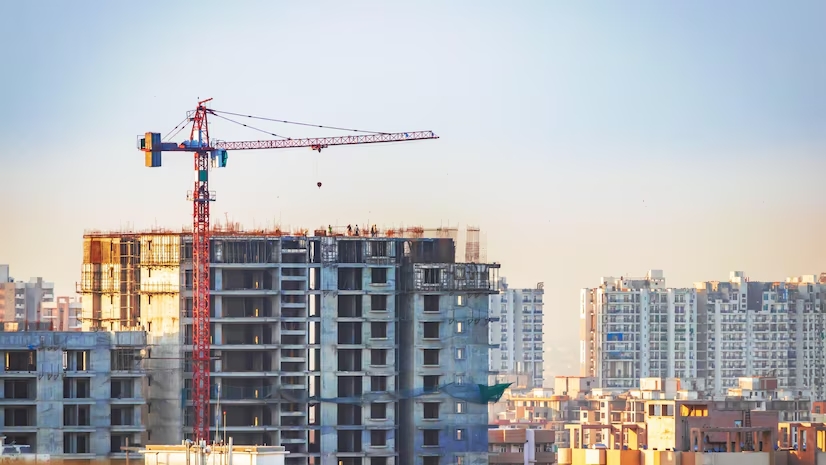Real Estate Key to Maharashtra’s Growth: DCM Shinde at CREDAI-Pune GB Meeting
Pune, 6th June 2025: CREDAI-Pune held its General Body Meeting and Installation Ceremony for the 2025–2027 Managing Committee on Friday, 6th June 2025, at the Conrad Hotel, Pune. The prestigious event was graced by the Deputy Chief Minister of Maharashtra, Eknath Shinde, who attended as the Chief Guest. The official Change of Guard ceremony took place in his esteemed presence, alongside Jitendra Dudi (IAS), District Collector of Pune, PMC Commissioner Naval Kishore Ram and PCMC Commissioner Shekhar Singh, Pratibha Bhadhane, Director of Town Planning; Deepak Singla (IAS), Additional Metropolitan Commissioner; Neelesh Gatne(IAS), CEO-SRA Kavita Dwivedi (IAS), Additional Divisional Commissioner, Pune Division, and Rahul Sakore, Chief Officer of MHADA, Pune Board. The GB meeting highlighted several key initiatives undertaken by CREDAI-Pune in recent months, including efforts to streamline environmental clearances, submission of suggestions and objections to the government on housing policies, and addressing critical issues such as road cutting permissions, solar metering, infrastructure development and maintenance challenges. Speaking at the event, Deputy Chief Minister of Maharashtra, Eknath Shinde said, “Maharashtra is not just a state of prosperity—it is a state of possibilities. The state will contribute $1 trillion towards India’s goal of becoming a $5 trillion economy. Real estate plays a pivotal role in Maharashtra’s economic growth, contributing significantly to the nation’s Gross Domestic Product (GDP) and employment. CREDAI was originally founded in Pune, and it was the visionaries from Pune who went on to establish CREDAI National. What began here eventually evolved into a national movement, with the model being replicated across various regions in India. He also congratulated CREDAI , acknowledging that it has consistently stepped up—not only in the field of construction but also during times of crisis, such as the COVID-19 pandemic—not just in Pune but in surrounding regions like Thane as well. He recalled how, during the pandemic, despite the reduction in stamp duty, the revenue generated was remarkably high. Reflecting on his tenure, he highlighted the rapid pace of development achieved in Mumbai and assured that a similar model would now be implemented in Pune. He mentioned that if we want to deliver affordable housing to the common man, we have to empower developers. Through reforms like Unified DCPR, stamp duty relief, and infrastructure upgrades, Maharashtra can become an investment magnet. He also emphasised that CREDAI Pune concerns—from DP approvals to TDR regulations—will not be left on paper. He promised that his government would take swift action, would be accessible and ensure it operates with urgency and accountability. He congratulated the newly appointed President and the Managing Committee, and emphasized the importance of coordinated efforts. By bringing together all key stakeholders—including the bureaucracy—he aimed to ensure that every part of the system works in sync and moves forward together. He concluded saying “Our goal is simple: development, development, and more development—and CREDAI will be a key partner in that journey. “ Manish Jain, officially instated as the President of CREDAI-Pune , presented a series of key issues and forward-looking suggestions before Deputy Chief Minister Eknath Shinde. He emphasized the need for greater interdepartmental integration to streamline the building sanction process, proposing that building permissions be processed concurrently with Environmental Clearance, so that construction can commence immediately once the EC is granted. Highlighting the inefficiencies, he remarked that nearly 90% of a developer’s time is spent on obtaining sanctions, while only 10% goes into actual construction. He also urged a phased and results-driven approach to Town Planning Schemes (TPs), recommending that two pilot schemes be implemented and evaluated for effectiveness before scaling up, ensuring more structured and impactful outcomes. Jain also announced the development of a 10,000 sq. ft. Centre of Excellence at COEP, designed to showcase cutting-edge global technologies in the real estate sector. The facility will serve as a collaborative hub for developers and students, fostering innovation and knowledge exchange within the construction ecosystem. Addressing governance-related challenges, he emphasized the urgent need to protect developers from undue harassment by blackmailers, advocating for stronger collaboration with police and law enforcement agencies. He reaffirmed CREDAI’s steadfast commitment to safeguarding its members’ interests by proactively involving the authorities to ensure a secure and fair business environment. He also called for more active participation from the CREDAI Women’s Wing and proposed the formation of a dedicated, professional team to offer real-time support and operational assistance to members. He concluded with a call to action, encouraging all stakeholders to focus not just on constructing buildings, but on building a more inclusive, forward-thinking future rooted in integrity, unity, and excellence. Jitendra Dudi (IAS), District Collector of Pune, addressed the distinguished gathering of developers and highlighted several key initiatives aimed at enhancing ease of doing business in the real estate sector. He emphasized that the MahaKhanij app is playing a pivotal role in improving transparency and expediting the development approval process. By integrating with systems like AutoDCR, it reduces duplication, resolves double taxation issues, and helps developers save valuable time and resources. He also spoke about a proposed reform to curb frivolous litigation, noting that nearly 80% of land-related objections come from individuals with no locus standi. Under the new proposal, such cases can be dismissed at the outset, reducing legal delays and allowing genuine projects to proceed without unnecessary hurdles. Additionally, he shared that a major revenue record digitization drive is underway in Pune. “One of the longstanding challenges has been incomplete digitization of revenue records. We began addressing this three months ago, and aim to digitize 3.5 crore records over the next six months. Once completed, these records will be made accessible through an open platform for easy public access,” he added. He further highlighted several key areas within the real estate sector where transparency and accountability are being addressed with a sense of urgency and sincere commitment by the administration. He also delivered a presentation outlining his proposal to promote tourism in Pune on a large scale, with the aim of attracting tourists. This, he emphasized, would help improve infrastructure in the interiors of Maharashtra while generating
Real Estate Key to Maharashtra’s Growth: DCM Shinde at CREDAI-Pune GB Meeting Read More »















